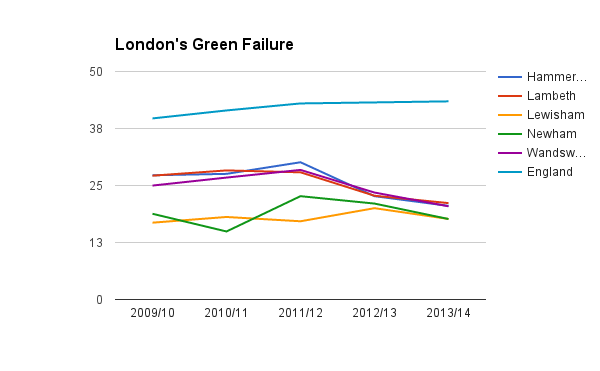Every week thousands of us across London go through the same routine, emptying rubbish into different bins. But what is the point, do we really know where all this rubbish is going?
The Rubbish Problem
In 2008, the EU set about getting to the nitty gritty and tackling excess waste with a ‘Waste Framework Directive.’ In layman’s terms, this is a long term strategy which for the UK, means achieving a 50% Household Recycling Rate by 2020! That’s a whole lotta junk…
Is it working?
According to research from food waste reduction and resource management charity WRAP – yes! WRAP (@WRAP_UK) stats show that avoidable household food waste was cut by a substantial 21% over 5 years from 2007 to 2012 – saving UK consumers a whopping £13 million.
How?
Some would argue that in the current economic climate, folk are tightening their purse strings in the supermarkets, spending less on excess luxury and cutting back on wasting food at home that could be eaten up. Jack Zou, a finance student living in Willen House, Islington, certainly seems to think this is the case:
“If I’m honest, I can’t even remember the last time I threw out any food item other than a banana skin! I’m very economical when it comes to food shopping – if I think there’s a chance I won’t eat it – I don’t buy it. There are so many other necessities that money could be spent on…and I know a lot of my friends feel the same.”
Recycling may also be on the rise. The data below charts Household Waste Recycling Rates in England and London Boroughs between 2009 and 2014, and it’s clear that there has been a rise in household recycling across England generally.
However, while household recycling rates appear to be going up in England generally, rates for some London boroughs are getting worse.

According to a BBC article published in 2014, the fall may be because of the pressure on collection and recycling services in certain boroughs where residents live in flats and other shared houses – making recycling more challenging.
So are the Councils doing enough?
There have been complaints across middle England about Council recycling, amongst concern from some individuals that waste put out for collection for composting or renewable usage has actually – been sent for landfill disposal.
Neil Randall from Dorset, sent a Freedom of Information request to Dorset County Council about this issue, and in the response the Council admitted that a maximum of 50kg of food intended for recycling is estimated to be collected for landfill.
It could be argued that the cuts by the coalition are putting a squeeze on recycling and green policies in local government.
But in reality, this shocking recycling trend can be seen across all of London, from Newham – which has one of the highest rates of child poverty in the city – all the way up to the well-heeled streets of Hammersmith and Fulham.
I spoke to Green Party Assembly Member – Jenny Jones – and she thinks enough still isn’t being done:
“Boris Johnson must wake up to flat-lining and falling recycling rates during his mayorality, and his abject failure to get new facilities built to reach his own targets…there is great potential to convert food waste into green energy and compost through anaerobic digestion, but this has hardly begun.”
Have an opinion on this issue? Email us at finderseaters@outlook.com or tweet us: @finderseaters_
